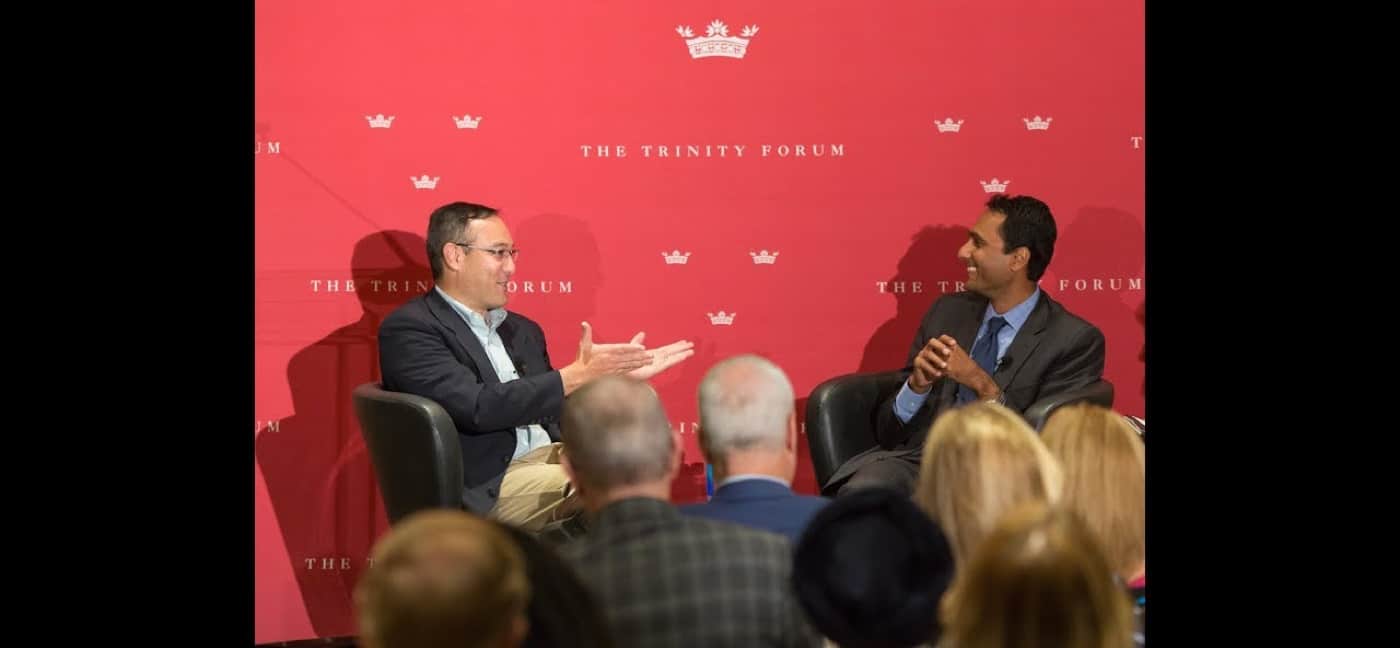Interfaith Friends and Deep Gratitude

Photo by Chris Berry and BenRosePhotography
Interfaith friendship means finding common ground with others even when we differ in our beliefs. This requires clarity about our differences and charity across those differences. Religious differences are not trivial, like our preferences for sports teams or ice cream flavors. Rather, they concern the ultimate questions of existence, with serious implications for how we choose to live our lives.
The weight of religious differences means that I do not actually revere all the beliefs of my interfaith friends. I do not have “holy envy.” But I do have a genuine appreciation for these friends and their influence on my life. Let’s call it “deep gratitude.”
Respect for individuals can exist where beliefs diverge.
I have deep gratitude for the counsel and example of my dissertation advisor, Jeff Spinner-Halev. Jeff is Jewish, which means that his faith commitments differ from mine as a Christian. But we share academic commitments in what we write and how we write. Throughout my graduate work, Jeff demonstrated an ability to blend a commitment to excellence with a willingness not to take himself too seriously. But more than that, he never hid his faith or the obligations that flowed from it. To the contrary, Jeff’s integration of faith and work modeled for me the kind of scholar who bridges different worlds without neglecting any of them.
I like to think I’m a better husband and father from conversations with my Muslim friend, Eboo Patel, the founder of Interfaith Youth Core. Despite our religious differences, Eboo and I experience common pressures in balancing travel and speaking engagements with family commitments. We have spoken together around the country and are currently co-teaching a class at Washington University. I always enjoy debating issues of pluralism and religious difference with him. But the defining moment of our friendship came during a walk around a park where we talked about our families. In that moment, and in many subsequent ones like it, Eboo encourages me as a person of faith and a human being to care for my family, to guard against pride, and to take seriously my own commitments.
My atheist friends challenge me with their honesty and eagerness in probing weighty questions. I won’t name these friends because they do not publicly identify as atheists. But they do not shy away from that label in our private conversations. I admire their willingness to articulate fear and uncertainty, which I sometimes find lacking in Christian friends who mask rather than confess their own doubts. This does not mean, however, that I think doubt and unbelief are good things. As a Christian whose hope is rooted in the life and death of Jesus, I wish that my atheist friends (and friends of other faiths) could share in that hope. But I value their depth of thought in our discussions about the difference between optimism and hope (the latter requires an object toward which it is directed). And I admire the integrity of their reasoning, though ultimately it can have the effect of leaving them without hope, absent a belief in God. This is a costly honesty, but honesty nonetheless, something that is missing in many of our social interactions. And their openness to share it with me signals trust, vulnerability—and friendship.
Interfaith friendships personify differences in a way that softens our assumptions and stereotypes. They allow us to experience charity that is rooted in relationships with real human beings. I do not think abstractly about Jews, Muslims, and atheists—I think of Jeff, Eboo, and other friends whom I have the privilege of knowing. And I thank God for each of them.
John Inazu is the Sally D. Danforth Distinguished Professor of Law and Religion at Washington University in St. Louis and the author of Confident Pluralism: Surviving and Thriving Through Deep Difference.
Editor’s note: This essay is part of an ongoing series on Holy Envy. People of various religions explain what they admire in other faiths. The purpose is to increase understanding and solidarity between believers.
![]()



